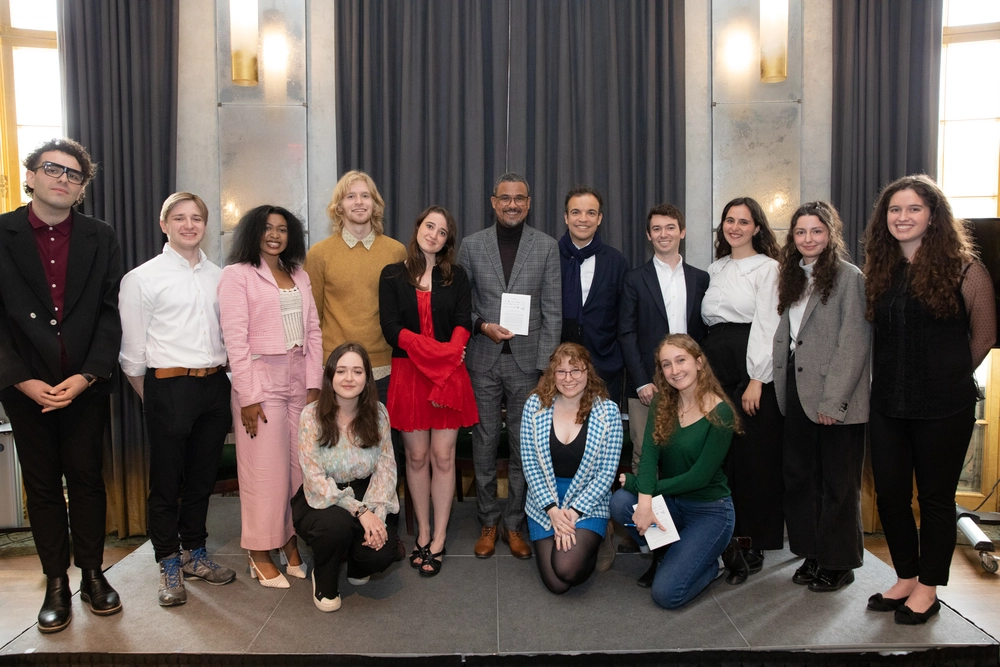
How do you decide which book deserves to be named the best work of French literature of the year?
That’s the question students from the Department of French & Italian asked themselves this spring as they participated in FR 322: Movements and Perspectives, which centered on the 2024 US Goncourt Prize Selection and was taught by French professor Julie Gaillard.
The Prix Goncourt, or Goncourt Prize, is one of the most prestigious francophone literary prizes, awarded each year since 1903 by the 10 members of the Académie Goncourt in Paris.
“It’s kind of the Pulitzer Prize equivalent in France,” said French student Finn Marloft.
The Choix Goncourt, or Goncourt Prize Selection, gives students from campuses across the globe the opportunity to participate in the selection process, and this year, the University of Illinois Urbana-Champaign campus was chosen as one of only 10 participating campuses across the U.S. Illinois was the only Midwestern school selected.
“It’s kind of a point of pride that we were [in that mix,]” said French student Rebecca Arden. “I think it’s a great representation of the Midwest.”
The group of six students read and analyzed the four nominated novels, took turns leading discussions, reflected on the themes, literary merit, and impact of each work, and chose a winner. They then elected a delegate who traveled to New York to defend their choice, deliberate with the delegates of the other nine participating campuses, and name the next “Choix Goncourt des États-Unis.”

“I was lucky enough to be chosen to be the representative to go to New York and represent U of I for the first time, which was really cool,” said Marloft.
He and his classmates selected “Triste tigre” by Neige Sinno—described as a poignant narrative of childhood trauma—as their winner, as did the other delegates.
“We had kind of unanimously decided on that book already, so there was very little deliberation, which was interesting. I heard it was the first time in a while that’s happened,” Marloft said. “It’s a tough story. Sometimes it makes you want to put the book down, but it pushes you to think about these things. The author is also so transparent with the reader, and that was something we all gravitated towards.”
While the students were able to find a lot of common ground during the selection process, they said it also allowed them to speak their minds, be vulnerable, and learn from each other’s diverse perspectives and experiences.
“It kind of felt like a book club a little bit,” said Arden. “Not only did I get to express what I think, but other people think very differently from me, so I got to understand the book on a deeper level by talking to other people.”
“Triste tigre” will be published in English in April 2025.
Editor's note: This story first appeared in the School of Literatures, Cultures & Linguistics fall 2024 newsletter.